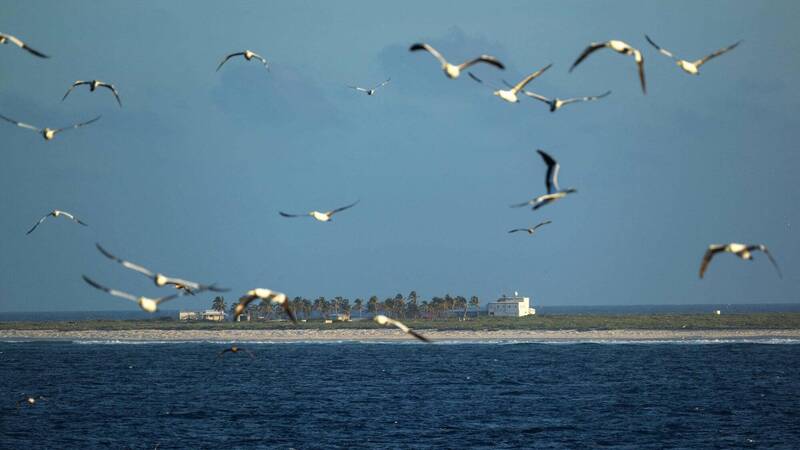Seabirds migrate across Marion Island and sub-Antarctic regions and play an important role in the ecosystem.
(AFP)
[Instant News/Comprehensive Report] Seal hunters in the 19th century accidentally brought mice to Marion Island in the southern Indian Ocean. Mice thrived in this warm and dry environment, feeding on invertebrates, plants and seabirds, breaking the island's native species food chain.
In this regard, the South African government ordered the eradication of rats on the island, and will use airdrops to spread rodent bait on the land.
It is hoped that in this way, the ecology of the island can be rebalanced.
According to the Guardian, Marion Island in the southern Indian Ocean is an uninhabited sub-Antarctic island 2,200 kilometers away from Cape Town, the capital of South Africa. The island is home to millions of seabirds, including four species of penguins and a variety of albatrosses.
It is reported that 1/4 of the world's vulnerable wandering albatrosses gather on the island, and there are also endangered sooty albatrosses.
However, these precious birds suffer from the persecution of rats.
Please read on...
In the 19th century, seal hunters accidentally brought house mice to the island, and the warm and dry environment allowed the mice to multiply.
They feed on invertebrates, plants, and seabirds.
The albatross, along with 18 other species of seabirds that breed on the island, are expected to face extinction if action is not taken against the rats due to drastic ecological changes, according to the study.
In this regard, the South African government decided to adopt "Zero Mouse Marion" (Mouse-Free Marion).
Removing invasive animals has proven to be one of the most effective ways to restore the island's ecosystem and boost biodiversity.
The South African government, together with BirdLife South Africa, has formulated the "Zero Rat Marion". It is expected that helicopters will be dispatched in 2025 to air-drop rodent control baits on 30,000 hectares of islands.
Southern Bird Life chief executive Mark Anderson (Mark Anderson) said that removing rats not only protects the birds on the island, but also affects the ecological integrity of the sub-Antarctic island.
